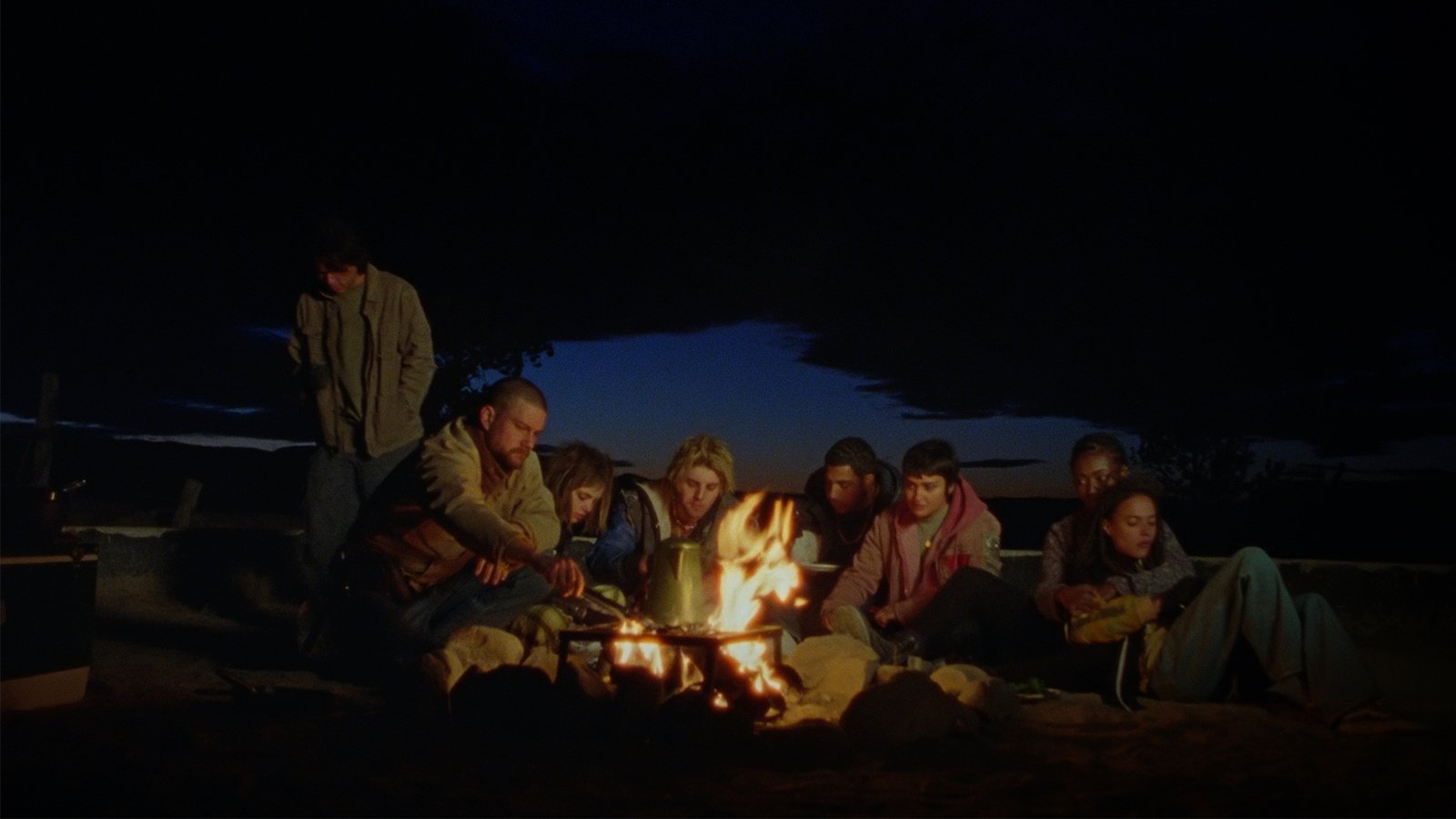How to Blow Up a Pipeline screens at the Sydney Film Festival on June 9, 12 and 14.
In an era where comparatively tame protests by groups such as Extinction Rebellion are viewed by far too many as “extreme tactics” (stopping traffic and throwing stuff on Perspex protected paintings is hardly throwing Molotov cocktails at petroleum brokers headquarters) Daniel Goldhaber’s incendiary indie How to Blow Up a Pipeline imagines what happens when climate activists actually take to direct action. Based on the 2021 book of the same name by Andreas Malm which asked why climate protestors were not using direct ‘terrorist’ tactics to deal with the greatest threat the planet has faced, Goldbach’s fictional film sees a group of mostly young people come together to disrupt infrastructure and delivery of oil in Texas by quite literally blowing up the pipeline.
Goldhaber’s film co scripted by Jordan Sjol and Ariela Barer (who also stars as Xochitl, the nominal head of the collective of climate revolutionaries) argues that trying to appeal to the public in a ‘hearts and minds’ campaign is failing, and we are rapidly running out of time. Corporations, governments, and the media have all obfuscated the climate crisis and minimised the possibility of mobilising people into action. Therefore, it is up to a group of young adults in the film to stop playing nice. Greta Thunberg’s school strikes and impassioned speeches caused some notice, but quickly became “yesterday’s narrative” in the news cycle. Greta asked why it is up to children who inherited a dying planet to come up with ideas about how to save it. Malm and Goldhaber’s thesis is that climate catastrophe cannot be relegated to yesterday’s news. Perhaps young people have to act in ‘criminal’ ways to stop climate criminals from continuing to profit from a planet on the brink of exhaustion.
Xochitl (Ariela Barer) is a college student whose mother died in a heatwave. She and her best friend, Theo (Sasha Lane) both grew up in proximity to refineries – the result is that Theo has a rare and aggressive cancer caused by chemicals she was exposed to as a child. Theo is without a family, and lives with her girlfriend Alisha (Jayme Lawson) who works at foodbanks and volunteers in community centres. Already politically engaged, Alisha questions why Theo would risk her life to follow through with Xochitl and her college colleague, Shawn’s (Marcus Scribner) dangerous plan to explode parts of a Texas pipeline. The answer is that nothing else has worked and Theo needs to be seen and heard before she just becomes another statistic of chemical poisoning which might end up on the news as part of a class action suit against the polluters, but probably not. She doesn’t have time.
Elsewhere, in North Dakota, Michael (Forrest Goodluck) rejects his mother’s push for Conservancy while First Nations land being destroyed by oil corporations. His anger is getting him into trouble with the seasonal oil workers and he begins to experiment with easily available chemicals to make bombs. In Oregon, Rowan (Kristine Froseth) has been scooped up by the police for vandalism and faces a long jail sentence because destruction of critical infrastructure on federal property can be charged under the terrorism act. Along with her rich kid boyfriend Logan (Lukas Gage) they too head to Texas. Waiting for them there is Dwayne (Jake Weary) a Republican coded character who has lost his farm due to eminent domain claims from the State where they plan to use his land for oil transportation. The point that is being made is that the climate catastrophe, although predominantly affecting the dispossessed, crosses political lines. If a good old ‘Merican boy like Dwayne is willing to risk his life, the time has come where the planet must come first.
Goldhaber weaves the background of each character into the film through well placed flashbacks. The flashbacks serve to amplify the tension of the work by putting a human face on the venture – one that could kill them if even a single thing goes wrong. As a thriller How to Blow Up a Pipeline is taut and lean. Every second counts. Infighting happens but the mission remains the priority. Michael is particularly nihilistic – he doesn’t particularly care if he dies and Goldhaber provides an abundance of near misses where he and the others really could be killed.
The group refuse to harm people or animals, they have drawn lines in the sand, but fossil fuel assets are fair game. They are aware that there are ramifications for communities in disrupting oil supply; Alisha asks Xochitl what makes her the arbiter of morals? Xochitl simply states she has to be because no one else has acted morally or for the good of the planet or its people. Why shouldn’t they take some control from the capitalist autocrats who prioritise profits over all else?
Goldhaber’s film is a nail-biting thriller; the kind of film Kelly Reichardt attempted with Night Moves, a movie that is similar but not as effective as How to Blow Up a Pipeline. Goldhaber’s work is chaotic and meticulous as the operation the team are undertaking. The pulsing soundtrack and fantastic camerawork give the film an urgent forward momentum. A small setback could mean failure, it could mean death, it will probably mean imprisonment. The audience is knocked out of complacency by the pace and the seriousness of the undertaking. Knowing these people are risking everything for the good of both the generations who allowed the climate catastrophe to occur, and those who are young and will bear the brunt of it does raise the heartbeat. We care, or at least we damn well should.
The people who made How to Blow Up a Pipeline really do care. Not only is Sasha Lane an actor in the film, she is also a producer. Ariela Barer a writer. How to Blow Up a Pipeline is not an empty gesture – it’s a call to arms. It is dangerous to attempt to damage government protected infrastructure (as is shown by the actual danger the characters are in, and the trouble Rowan faces), but the small things that Xochitl and others do such as deflating the tyres of gas guzzling SUVs, or crippling luxury yachts and leaving behind a reasoned letter explaining why is a tactic that might catch on. Even if it doesn’t, How to Blow Up a Pipeline urges the viewer to really think about the climate emergency and asks that action be immediate and direct. There has been too much time wasted trying to make people pay attention – they need a jolt out of climate depression and complacency.
Director: Daniel Goldhaber
Cast: Lukas Gage, Ariela Barer, Sasha Lane
Writers: Ariela Barer, Jordan Sjol, Daniel Goldhaber



